aris buzzes with anticipation for the 2024 Summer Olympics, but for athletes living north of the 55th parallel, game time is right now. Eight delegations from the circumpolar region are converging in the Matanuska-Susitna Borough for the 2024 Arctic Winter Games from March 10 to 16. This is the first time the Mat-Su Borough has hosted in the event’s fifty-four-year history.
“We are extremely proud to be an integral part of this momentous occasion,” says Wasilla Mayor Glenda D. Ledford.
First held in 1970, the Arctic Winter Games is a biennial athletic competition and cultural exchange for young athletes, aged pre-teen through young adult, from eight contingents across the Circumpolar North. Athletes compete in twenty-one indoor and outdoor sports, including alpine, cross-country, and biathlon skiing; figure and speed skating; basketball, volleyball, table tennis, wrestling, and badminton; and traditional events called Arctic sports and Dene games.
“There are 2,000 participants, which is close to what some of the Olympics have,” says Karen Lane, general manager of the 2024 Mat-Su Arctic Winter Games Host Society. “So it is a big deal.” Indeed, the 2020 Winter Olympics in Beijing had 2,871 participants—along with an entourage of support staff, families, media, and 2,000 volunteers.
Being able to host such a big deal in the Mat-Su Borough required a team effort.
The idea of hosting has been on the Mat-Su’s radar as far back as 1996, the borough said in an April 2021 press release announcing its selection as the 2024 host site. Until recently, the area lacked the resources and facilities to host such a large-scale event. Since 1996, the development of several critical venues make hosting possible: the Curtis D. Menard Memorial Sports Complex, the Government Peak Recreation Area, and the Skeetawk alpine ski area at Hatcher Pass, for example.
After the 2014 Arctic Winter Games, those involved in bringing them to Alaska unofficially agreed that Mat-Su would be the next Alaska host community, according to Lane. A Bid Committee approached the borough to gauge its willingness to provide financial backing. “It’s always the government agency that is a partner in [the Arctic Winter Games] because they’re the organization that always exists,” Lane says. “The host society is formed, and it puts on the games, but as soon as the games are over, it will go away.”
The Mat-Su Borough Assembly approved the bid in a resolution adopted on February 2, 2021, along with a $250,000 appropriation. Early financial backing also came in the form of a $50,000 surplus from the 2014 Arctic Winter Games and a verbal commitment for $2 million from the State of Alaska.
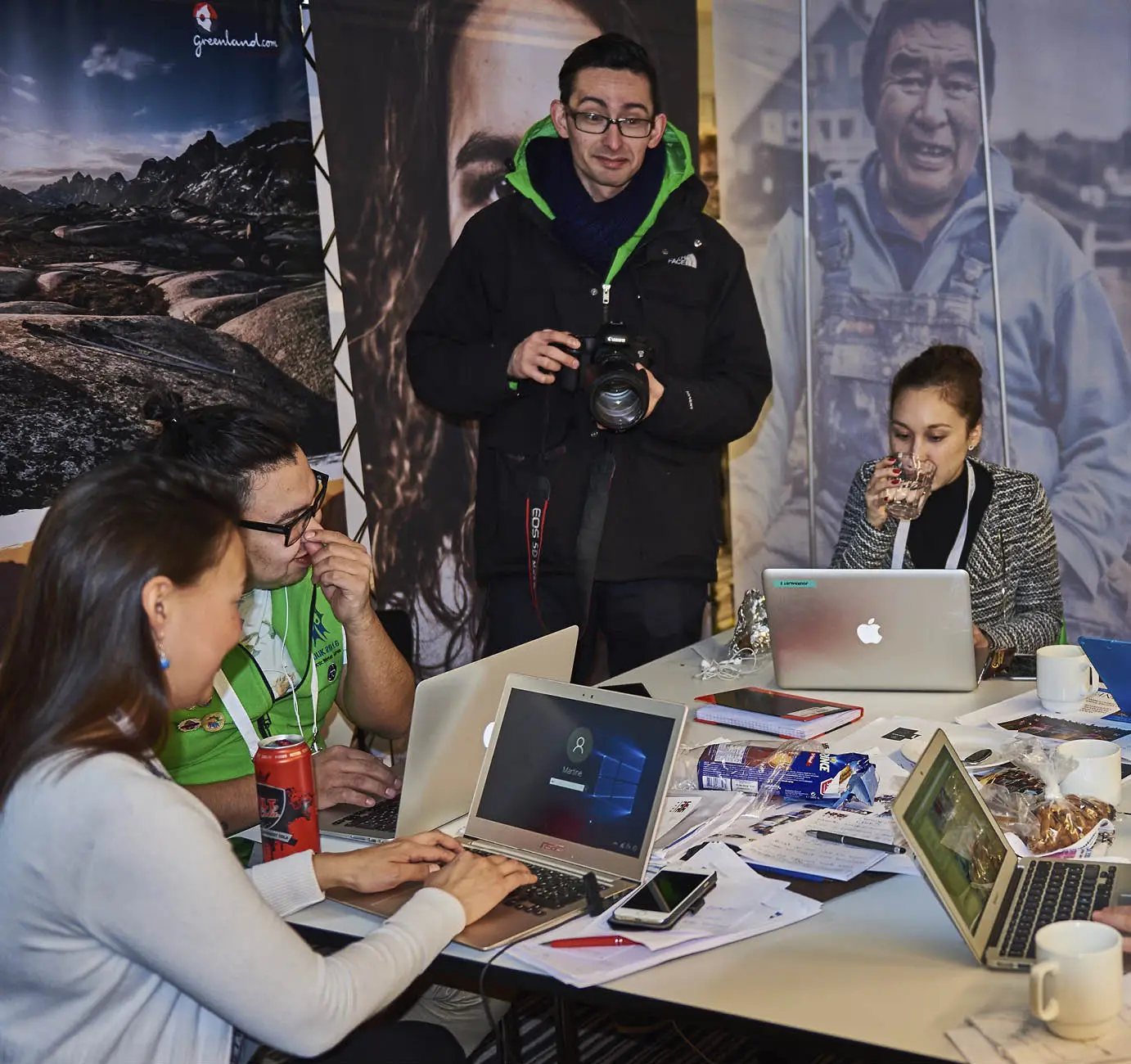
Vagn Hansen | 2016 Arctic Winter Games
Submission of the bid was followed by a site visit from the Arctic Winter Games International Committee, which for the first time was conducted virtually due to the COVID-19 pandemic. Lane says the visit is as much for the committee to weigh the strengths and weaknesses of the bids and potential host sites as it is for the host city to get a clear picture of everything that hosting entails. The International Committee awarded the contract to the Mat-Su in April 2021. Shortly after, with the borough’s participation, the host society was formed.
Events are being held at various locations around Palmer and Wasilla, including the Menard Sports Center, Skeetawk, the MTA Events Center, and The Glenn Massay Theater. Former host communities Anchorage and Eagle River/Chugiak are also welcoming athletes again—the ski and snowshoe biathlons take place at Kincaid Park, and the Harry J. McDonald Memorial Center in Eagle River is hosting figure skating and short track speed skating.
Athletes are being housed at “villages” in six area schools—Wasilla Middle and High Schools, Colony Middle and High Schools, and Palmer Junior Middle and High Schools—with the Mat-Su Borough School District extending its spring break by an extra three days so that volunteers can prepare the schools for the athletes’ arrival.
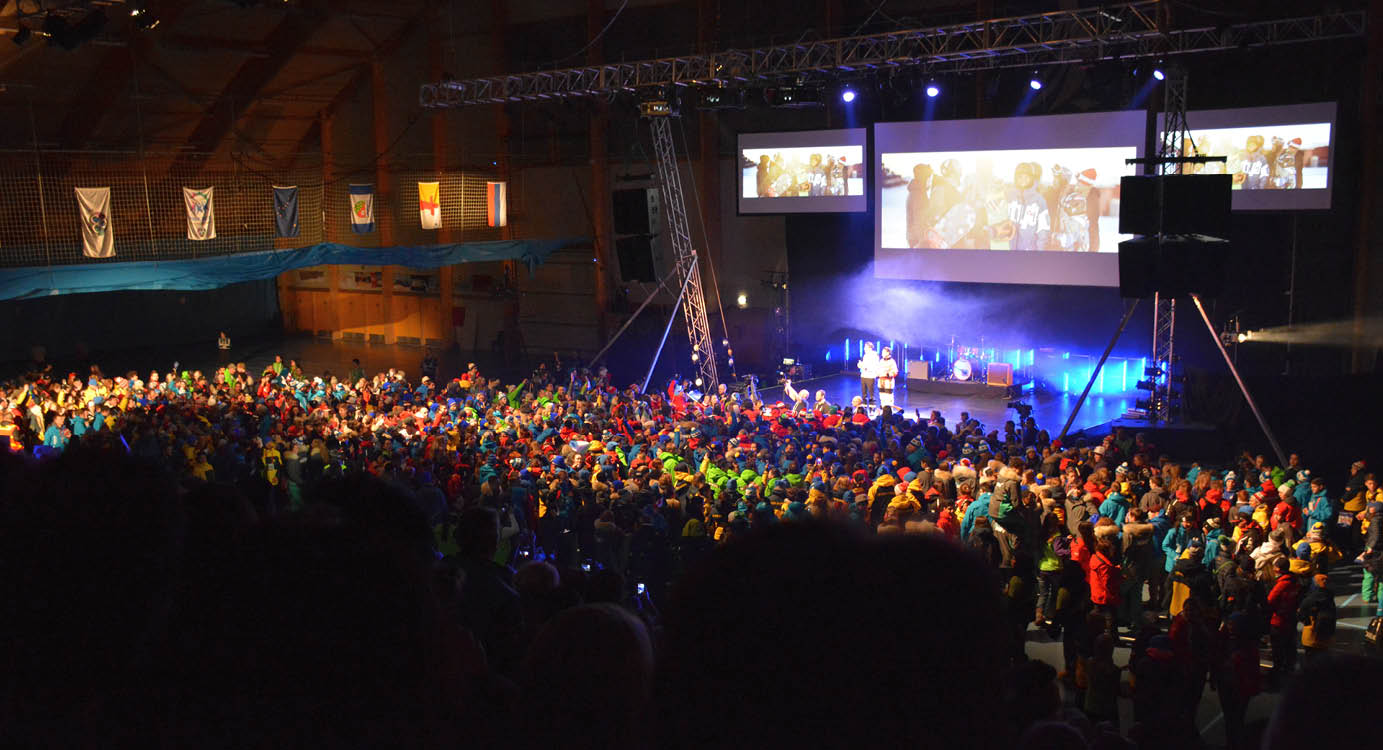
Hadler | 2016 Arctic Winter Games
The Arctic Winter Games also include opening and closing ceremonies, cultural activities, a Winter Carnival and Indigenous/Northern Makers’ Market at the Alaska State Fairgrounds, a concert by Inuit-soul music group Pamyua, and an Indigenous fashion show.
“We are 100 percent funded through donations and sponsorships,” she says. “We’re leveraging every bit of funding that comes in to full advantage, from operations to what we need to supply not only to participants but within the community as well.”
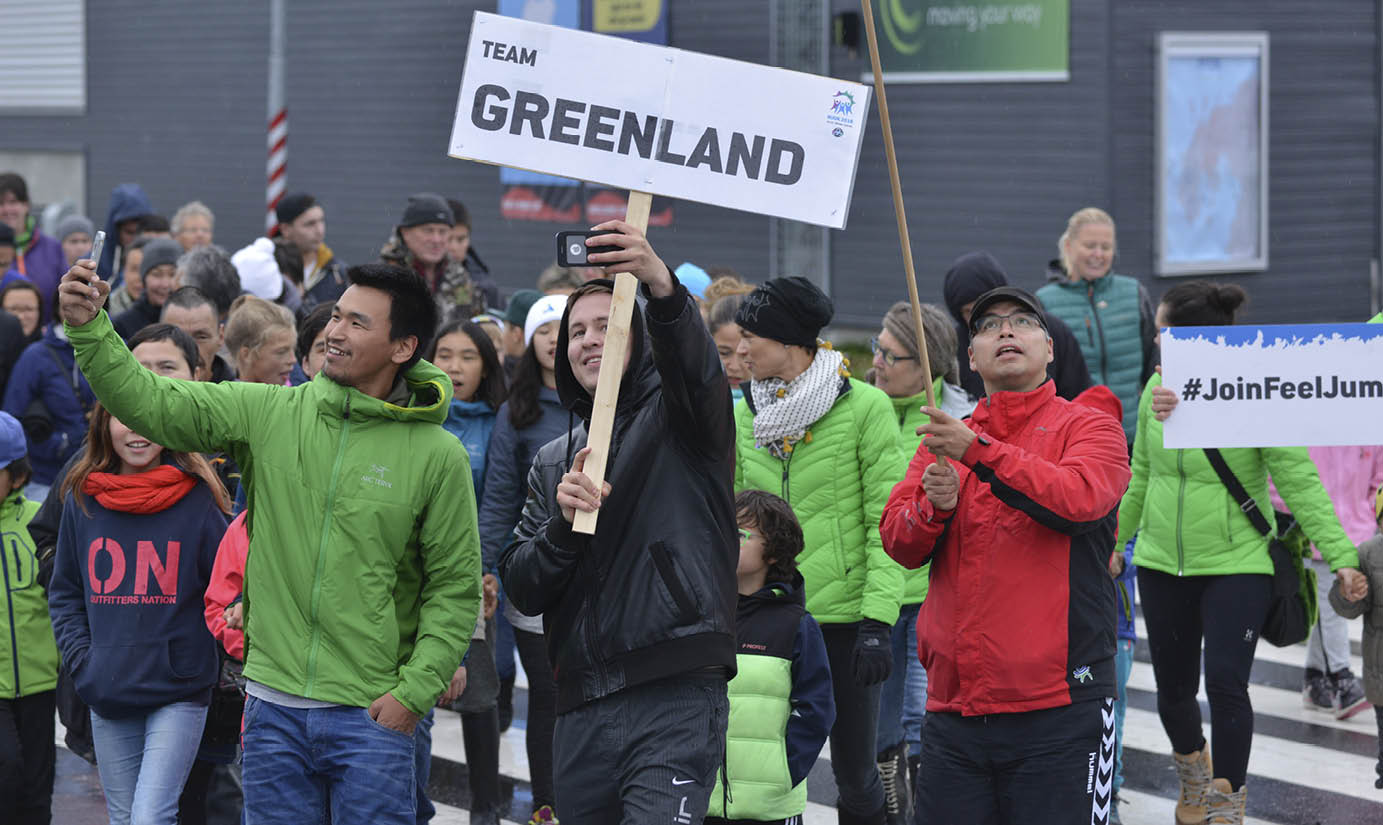
Bo O. Kristensen | 2016 Arctic Winter Games
Larger sponsors often become part of what Metiva calls “the legacy program,” where the donation is used to purchase equipment that is donated to the venue to keep.
Norfolk Telecom, for example, purchased snow fencing at Skeetawk and Government Peak that will be used in future competitions, she says.
With another grant, “We purchased a $7,000 Bluetooth sound system for the remote game area, which will be donated into the Mat-Su School system or library so that libraries that need systems will be able to use them,” Metiva says.
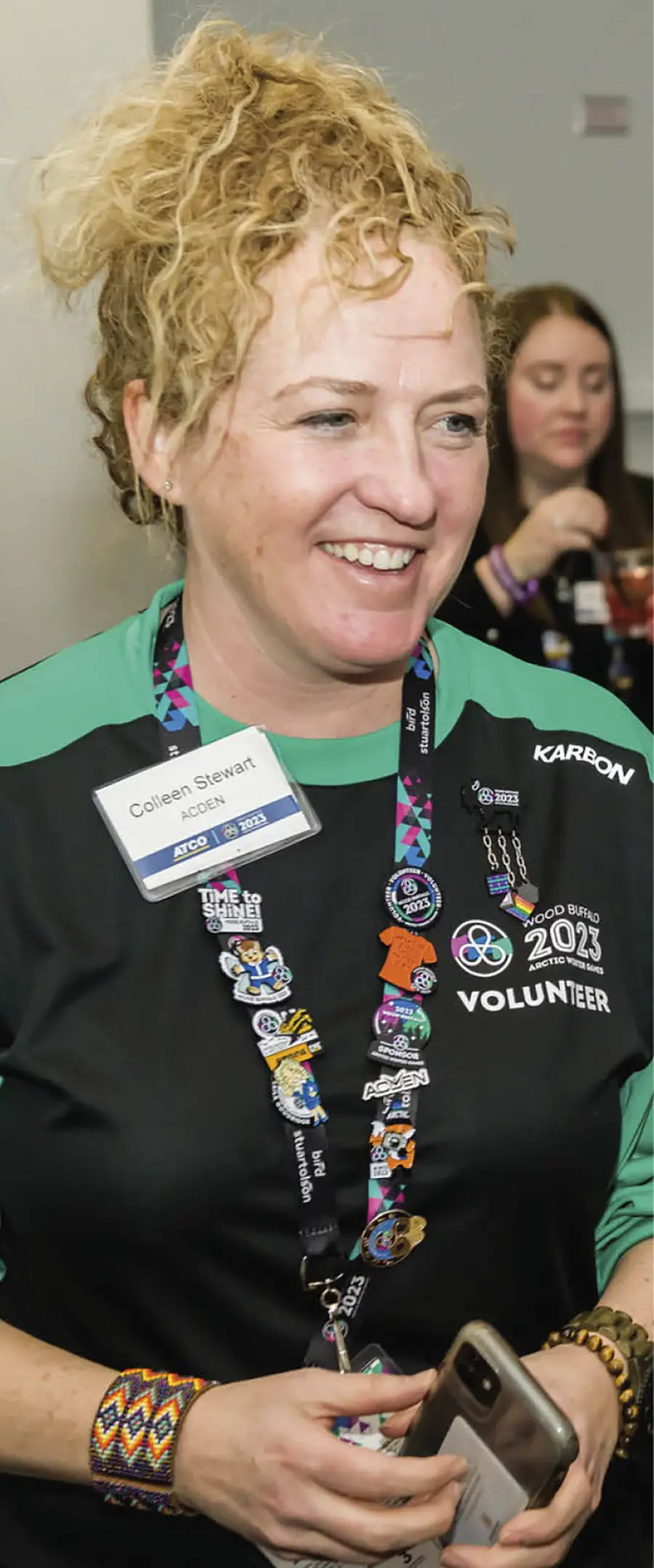
2023 Arctic Winter Games
2016 Arctic Winter Games
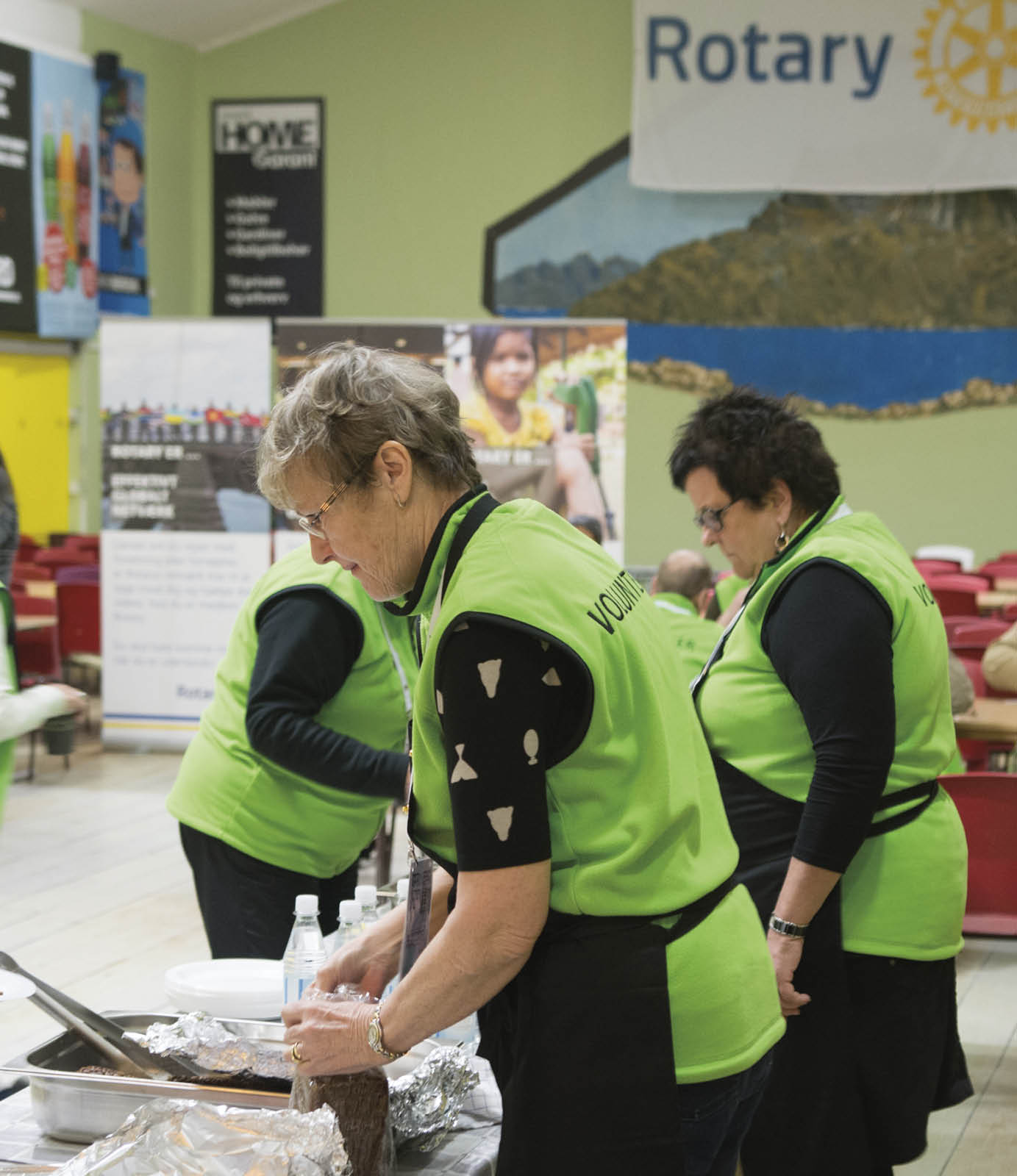
2016 Arctic Winter Games
Avis Alaska has provided a 50 percent discount on more than sixty vehicle rentals and has donated eight vehicles and a new cargo van through April 30, Metiva says. DG Signs & Lighting and Donlin Gold joined to cover the cost to wrap the van with logos for the Arctic Winter Games and all three sponsors.
“It’s just another one of those really creative ways that’s providing a huge need for us, but also one of those win/win creative instances,” she says.
Many mom-and-pop businesses have also stepped up with in-kind contributions and other creative sponsorhips, Metiva says, and she leverages those contributions in a way that’s meaningful to both the sponsor and the event. Restaurant sponsors like Chepo’s Mexican Restaurant & Cantina, Evangelo’s Restaurant, the Noisy Goose Café, or Hatcher Pass Pizza provide snacks and meals for volunteer recruitment and orientation events. Glacier Med Spa is closing its offices for three days to hand out free hot chocolates during the skiing events.
“It’s just a huge service to that event because there aren’t any concessions at Government Peak or Skeetawk,” she says. “It just shows some of the innovative ways our sponsors are getting involved.”
“Hotels and bed and breakfasts will be booked, and we’ve booked several hotel rooms in Anchorage for media and special guests,” Lane says. “All these people will be renting cars and spending money in the community. The participants and their families will be buying things and eating out. It’s a lot of economic development not just for the Mat-Su but Anchorage, too.”
Media coverage from outlets across the Circumpolar North will highlight the Mat-Su’s world-class recreational facilities and its desirability as a vacation destination, which is likely to financially benefit the borough in the future, Lane says.
“Supporting the Arctic Winter Games 2024 goes above and beyond the fiscal,” Ledford says. “It provides an exclusive opportunity for us to showcase our community to international athletes, guests, and visitors while merging cooperation and interrelationships between communities throughout the borough and state.”
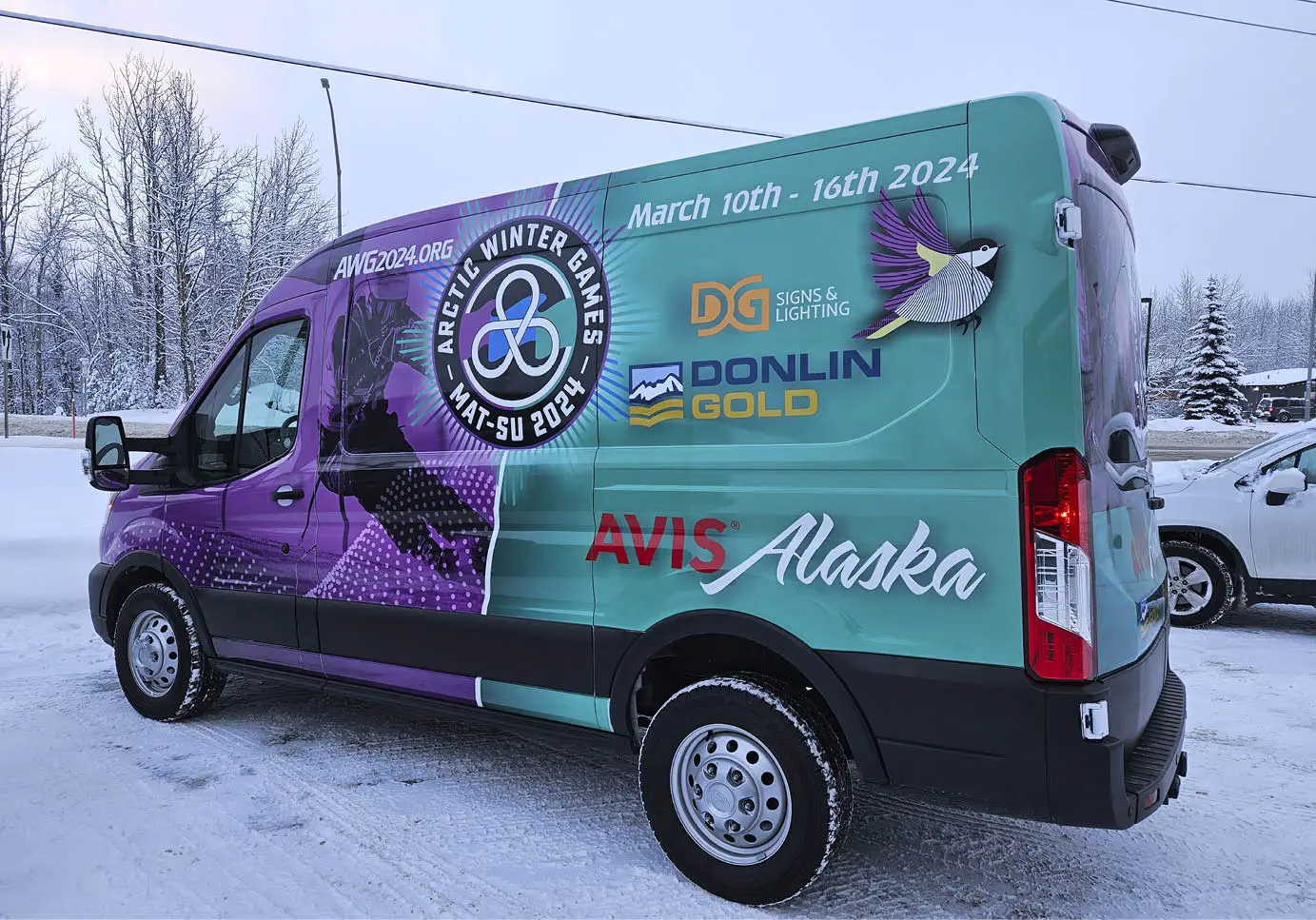
Mat-Su 2024 Arctic Winter Games
“It’s amazing,” says Lane, who was general manager of the 2014 Fairbanks Host Society. “By the closing ceremonies, everyone is friends and they’ve all traded uniforms, and you don’t know who’s who anymore. It’s just amazing to watch the difference between the opening ceremony and the closing ceremony.”